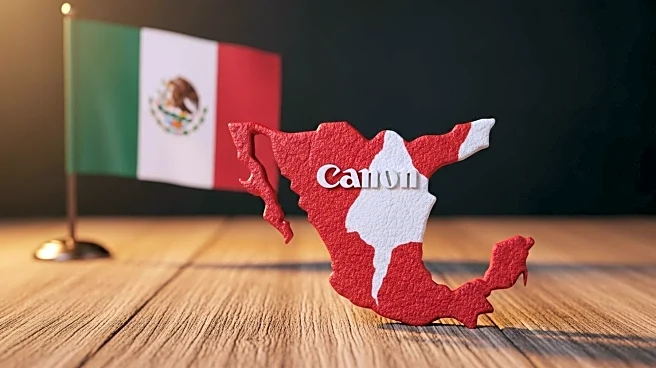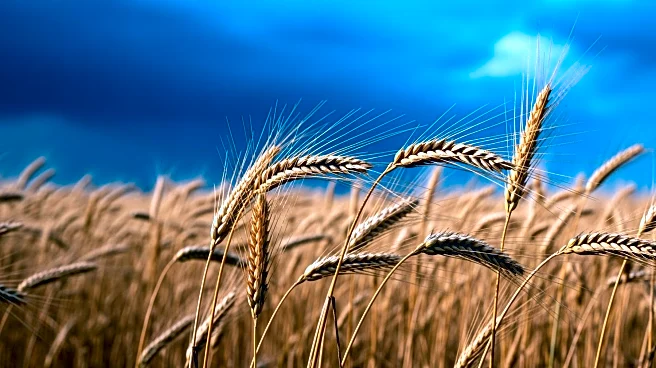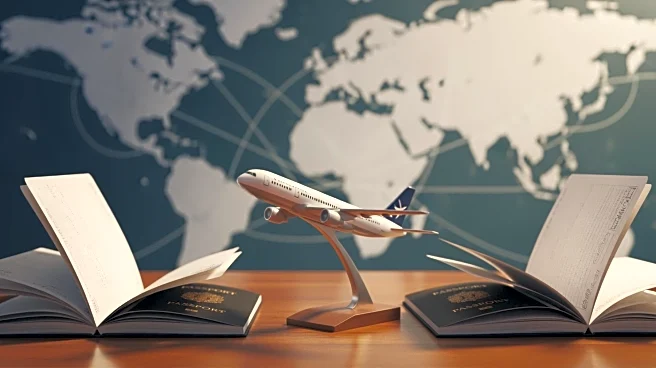What's Happening?
In 2025, Brazil, the world's largest beef exporter, encountered a significant tariff crisis when the U.S. imposed an additional 50% levy on its beef exports, raising the effective tariff to 76.4%. This move by the Trump administration forced Brazil to rapidly redirect its beef shipments to Mexico, which became its second-largest beef market. By July 2025, Brazil's beef exports to Mexico surged 420% year-to-date, reaching 67,659 metric tons, a substantial increase from the previous year. Mexico's strategic advantages, including proximity and low logistics costs, positioned it as a critical buffer for Brazil. The Brazilian government is seeking approval for additional meatpacking plants to export to Mexico, potentially increasing authorized facilities to 49. This expansion is part of a broader effort to leverage Mexico's market and its role as a regional distribution hub.
Why It's Important?
The tariff crisis highlights the geopolitical risks and the need for diversification in global trade. Brazil's ability to adapt by expanding certification capacity and securing new trade agreements demonstrates strategic foresight in mitigating trade disruptions. The crisis underscores the importance of supply chain agility for global meat exporters. Brazil's shift towards Mexico and other markets like China and Southeast Asia reflects a calculated strategy to reduce dependency on any single market. This development is crucial for investors and stakeholders in the meat export industry, as it emphasizes the need to balance short-term market access with long-term geopolitical stability.
What's Next?
Brazil is negotiating a free trade agreement with Mexico and exploring renewed terms for tariff suspensions on essential goods. The U.S. remains a critical market for Brazil, and the government has hinted at legal challenges to the tariffs' legality. The broader takeaway for global exporters is the necessity of diversification as a core strategy in an era of escalating trade wars. The crisis may lead to further shifts in global meat trade dynamics, with potential impacts on U.S. consumers and international trade relations.
Beyond the Headlines
The tariff crisis has broader implications for global trade policies and the strategic positioning of countries in international markets. Brazil's diversification strategy could serve as a model for other exporters facing similar geopolitical challenges. The crisis also raises ethical and legal questions regarding the use of tariffs as a tool for political leverage and its impact on global food security.








